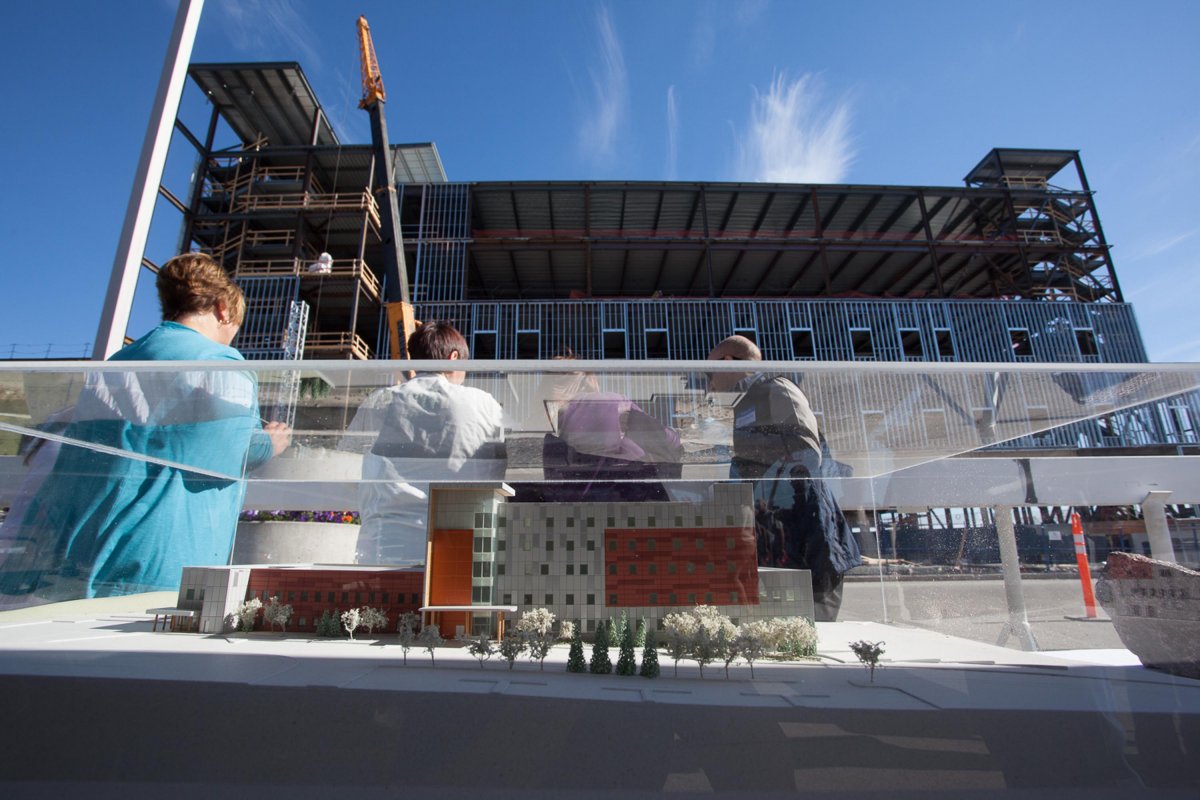Canada’s Arctic territories all declare public health emergencies
“You don't want to be the one person that introduces COVID-19 into a small community, with the devastating consequences.”

Canada’s three Arctic territories — Yukon, Northwest Territories, and Nunavut — all declared public health emergencies on Wednesday.
None of the territories have had confirmed cases of COVID-19, but officials believe it’s inevitable, said Dr. Kami Kandola, chief public health officer for Northwest Territories, in a press conference on Wednesday.
“We have to do everything possible to slow the introduction of COVID-19,” Kandola said. “In the North, with our remote and isolated communities, we’re at particular vulnerability.”
[How the Arctic’s limited infrastructure could make coronavirus deadlier in the region]
These declarations will help the territorial governments prepare for the coronavirus, which has now been confirmed in 173 countries and territories around the world. Canada had reported 727 confirmed cases and nine deaths as of Wednesday.
“If we don’t take this measure now before we see cases in Nunavut, it may be too late as time goes on,” said Nunavut’s Minister of Health George Hickes in a statement.
Leaders in these regions will need to take “creative steps to increase access to care in remote communities and reduce the strain on health centers,” Kandola said.
This could include remote diagnoses for non-urgent illnesses, fast-tracking licenses for more health workers to be able to work in the territories, restricting travel and, when necessary, enforcing self-isolation and quarantine, and using schools and other locations in the outbreak response.
“Every one of us should be washing our hands — a lot — for at least 20 seconds,” Kandola said.
Some remote communities, however, don’t have running water, sanitation, and adequate health services.
And what resources do exist could quickly become strained.
Northwest Territories, for example, has a total of six intensive-care beds, all at Stanton Territorial Hospital in Yellowknife, and 13 ventilators — including those aboard air ambulances.
Dr. Sarah Cook, the territory’s medical director, said on Wednesday these medevac services are still running at full capacity and have also been equipped with personal protective equipment for transporting patients with suspected COVID-19 infections.
Some services can be provided in remote communities with others provided at Stanton, but patients who need higher-level care, like ECMO life support, would need to be transferred to Edmonton.
“A few cases of people needing ventilator support can start to impact our resources,” Kandola said, urging people to practice social distancing and try to “flatten the curve” by reducing demand on the healthcare system.
“For those who are not extremely unwell, it is safe to stay at home in self-isolation,” Cook said.
Nunavut recommends self-quarantine for anyone who has traveled outside the territory, except for essential staff like health workers. Those who planned to travel for non-urgent medical issues will have their appointments rescheduled.
Yukon also urges anyone who has traveled outside the territory to self-isolate.
Northwest Territories recommend two weeks of self-isolation for international travelers and two weeks of self-monitoring for people coming from other parts of Canada.
“You don’t want to be the one person that introduces COVID-19 into a small community, with the devastating consequences,” Kandola said.
So far, 153 COVID-19 test results — all negative — have been received in Northwest Territories. At least 119 results are pending. But it can take up to a week to learn the results.
The delay is primarily due to transporting the samples, Cook said. Each test is sent to Alberta, because Northwest Territories doesn’t have the capacity to run the tests.
In Nunavut, about 60 tests have been performed, with half of them negative and the other half still pending.
Yukon has received confirmed results for about 80 negative tests, and about 120 are still being processed.
Gatherings with 50 people or more have been banned in Northwest Territories and Yukon.
Schools are closed until April 15 at least in Yukon, and hospitals there have strict visitation policies. All public recreation spaces, from ice rinks to libraries, are closed until further notice.
In Nunavut, all bars must close by Friday, and restaurants will be takeout-only. Passengers may not travel together in taxis.
According to one study, if Chinese officials had acted three weeks earlier in the Wuhan outbreak, cases could have been reduced by 95 percent.
That was one impetus for taking decisive action now, Kandola said.
“We’re doing it now, and quickly, so that we’re not faced with a complete shutdown of all businesses,” she said.
“It’s about minimizing opportunities where COVID-19 can enter, gain foothold and spread quickly.”